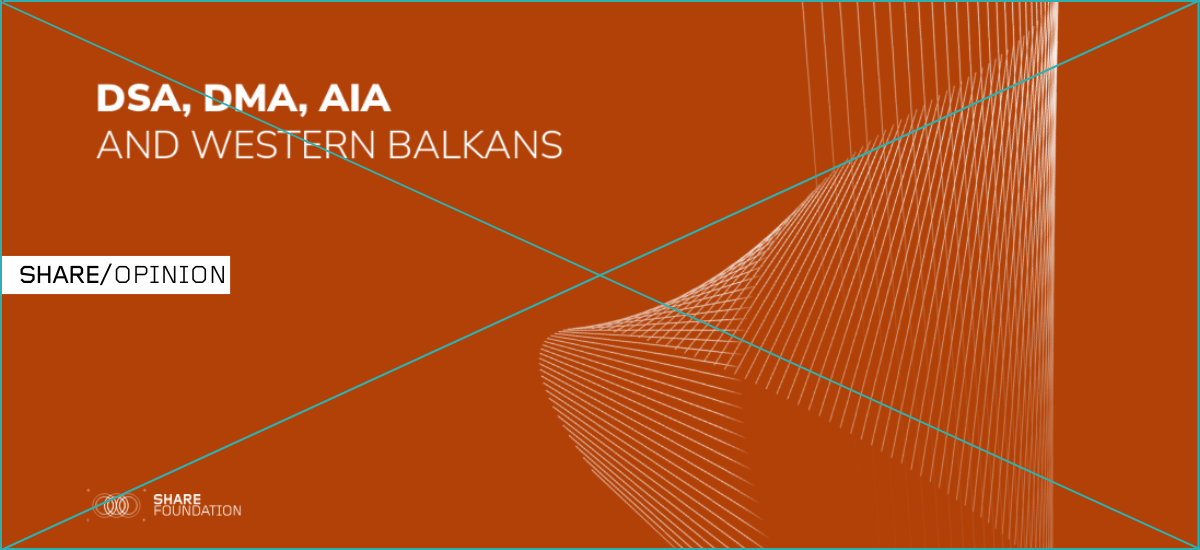News

Digital ecosystem of the Western Balkans: from regulatory gap to systemic approach
Alongside the innovations, technological breakthroughs and shifts in the digital industry, the third decade of the 21st century also marks a kind of institutional milestone primarily recognized through the establishment of the European Union’s Digital Single Market, accompanied by a set of rules aimed at ensuring that all rights and freedoms guaranteed to citizens by the European legal order are respected in such a market.
Brussels aims to achieve this ambitious goal by pivoting towards a comprehensive systemic regulatory approach, which includes a series of acts of particular significance such as the Digital Services Act (DSA), the Digital Markets Act (DMA), and the Artificial Intelligence Act (AIA). These regulations address key structural challenges of the current digital ecosystem and create a significant part of the normative and institutional framework of the European Digital Single Market.
The question is whether the potential “Brussels effect” in the form of increased transparency of large online platforms, an interoperable digital market, or the mitigation of adverse effects from the use of AI systems in the EU could also be felt in its European neighborhood. How much can this milestone be an opportunity for the Western Balkans region to ride the wave of the EU’s regulatory actions and adopt a European normative direction with a systemic and comprehensive approach to regulating the digital industry? Answers to these questions, among other things, depend on the starting point, i.e., the current legislation and the overall normative and institutional framework in these countries.
As shown by a study conducted by the SHARE Foundation in cooperation with regional partners, existing legislation in Albania, Bosnia and Herzegovina, Montenegro, Kosovo, North Macedonia, and Serbia does not provide an adequate regulatory response to the challenges of the digital environment.
The comparative assessment of regulations in the Western Balkan countries relative to the EU has revealed that certain rules applicable to digital services and markets exist within national legislation. However, most countries lack comprehensive regulations concerning artificial intelligence. Rules that do exist, however, generally fall short of European standards for several reasons. They often stem from previous generations of regulations, failing to adequately address current challenges. Additionally, these rules have limited regulatory strength because they are scattered across a broad spectrum of laws, strategies, decisions, bylaws, and other legal documents, impeding the systematic regulation of the digital environment.
Mapping and assessing existing regulations from the perspective of key digital challenges in the Western Balkan countries provides a crucial baseline for understanding new European rules and the current circumstances in the region, that will also support further research initiatives, monitoring, policy creation, and improvement in these areas. The study analyzed the normative base of relevant acts, mapped new rules, and examined the institutional frameworks of the DSA, DMA, and AIA. These served as benchmarks for comparing the regulatory state in individual Western Balkan countries. Methodologically, the exploratory phase of the research established the value structure of the three Acts, which formed the analytical matrix for the comparative analysis and assessment of these countries’ legal frameworks in relation to European standards.
According to the study’s findings, the central value of the DSA is accountability, while the overall value structure of this act is built on reliability, transparency, safety, horizontality, and accessibility. The key value of the DMA is the democratization of the market, operationalized through transparency, accountability, interoperability, mobility, and the demonopolisation/deconcentration of the digital market. Preventing and addressing the adverse effects of AI was identified as the central value pillar of the AIA, supported by transparency, as well as harm prevention and reduction, and oversight of the use of AI systems.
The significance of these values for every citizen and society as a whole is unquestionable. However, the full implementation of the rules established by these acts is necessary to determine the achievability of the benefits and the attainability of the goals set by European policymakers. Therefore, monitoring the implementation and effects of the new regulations is particularly important. The active involvement of all stakeholders—including European institutions, national bodies, experts, researchers, the industry, and the citizens themselves—is essential for transitioning towards a democratic digital ecosystem that fully respects the rights and freedoms of all citizens.
The Western Balkan countries face the task of comprehensively improving existing regulations and paving the appropriate institutional path for systematically addressing the challenges of the digital environment, opening the digital market towards the EU while respecting the criteria of transparency, accountability, fair competition, and full protection of human rights.
Snežana Bajčeta is a SHARE Foundation Researcher in the areas of digital technology, media i journalism.



